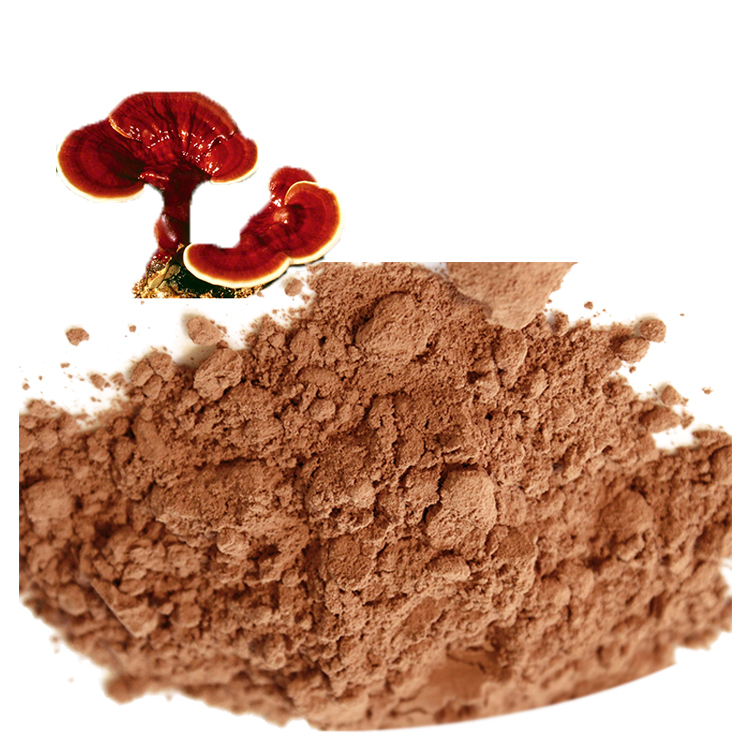Ganoderma, known globally as Lingzhi or Reishi, is celebrated for its potential to enhance well-being. However, anyone researching or purchasing Ganoderma extracts—be it Ganoderma extract, Ganoderma lucidum extract, Lingzhi extract, or Reishi mushroom extract—will quickly notice dramatic price differences. What causes these disparities, and what should buyers truly look for? This article unveils the real drivers behind the price gap and teaches you how to identify value versus marketing tricks.
1. Raw Material Quality: Not All Mushrooms Are Equal
The first and most fundamental reason for price difference is the quality of the raw Ganoderma used. Wild Ganoderma lucidum, grown in pristine environments, is rare and costly to harvest. In contrast, mass-produced, artificially cultivated mushrooms may lack key bioactive compounds.
Wild vs. Cultivated: Wild Lingzhi is generally richer in triterpenes and polysaccharides but is expensive due to limited supply and complex harvesting.
Part of the Mushroom: Some products use only the fruiting body, others use the mycelium, and some even use fillers or unrelated fungi. The fruiting body is most prized for its medicinal compounds.
2. Extraction Techniques and Purity
High-quality extracts use advanced extraction technologies—often involving dual extraction (water and alcohol) to maximize the range of active ingredients.
Concentration Ratios: Genuine 10:1 or 20:1 extracts require much more raw material per unit, increasing cost but also potency.
Purity: Some low-cost products are adulterated with starch, dextrin, or other fillers, drastically reducing efficacy while lowering costs.
3. Certification, Testing, and Traceability
Legitimate producers invest in third-party lab testing, traceability, and certifications (e.g., organic, non-GMO, GMP). These verifications add to cost but ensure consumer safety and authenticity.
Heavy Metal and Pesticide Testing: Quality brands ensure their products are free from contaminants, a concern particularly for mushrooms grown in polluted areas.
Transparency: Reputable suppliers disclose lab reports, batch numbers, and country of origin.
4. The Impact of Marketing and Branding
Price is often inflated by branding and marketing campaigns, which may not reflect true product quality.
Celebrity Endorsements and Fancy Packaging: Some brands invest more in marketing than in the product itself.
Claims vs. Reality: Watch out for unsubstantiated claims (“miracle cure”, “100% pure”) and pseudo-scientific endorsements.
5. Supply Chain and Scale
Large-scale producers may lower costs through economies of scale, but sometimes at the expense of quality. Conversely, small-batch, artisanal producers cannot compete on price but may deliver higher efficacy and purity.
6. Deceptive Practices: Common “Tricks” in the Industry
Mislabeling: Some products use “Ganoderma extract” on the label but contain little or no actual extract.
Spike with Cheap Extracts: Mixing Ganoderma lucidum with lower-value mushroom extracts or plant powders to reduce cost.
Dilution and “Spray-Dried” Powders: Some low-cost powders are mostly carrier material, not active extract.
7. How to Choose Genuine Ganoderma Extracts
Check for Standardized Extracts: Look for standardized levels of triterpenes and polysaccharides.
Demand Transparency: Always request or check for Certificates of Analysis.
Buy from Reputable Sources: Avoid “too good to be true” bargains.
Understand Label Claims: Know what a true “10:1” extract means, and watch for ambiguous labeling.
8. Understanding Price vs. Value
Higher Price ≠ Higher Quality: Some expensive products are simply marketing-driven.
Low Price = Red Flag: Extremely low prices likely indicate low quality or adulteration.
Conclusion
The price gap in Ganoderma extracts stems from raw material quality, production methods, testing, marketing, and sometimes, deception. Consumers should focus on science-backed products with transparent sourcing and certifications rather than just price or brand. By understanding the real value drivers, you can invest in Ganoderma extract, Ganoderma lucidum extract, Lingzhi extract, or Reishi mushroom extract with confidence.
Read More:
Key Considerations for Controlling Residual Solvents and Heavy Metals in Ganoderma Raw Materials
Why Global Wellness Brands Are Seeking Organic Mushroom Powder OEM Partners
Hangzhou Molai Biotech Co., Ltd has supply capacity 1200+ tons per year for mushroom powders and extracts, including the mushroom mycelium from modern technology of Deeply Liquid Fermentation and fruiting bodies from the grown real mushrooms to meet the different markets.
Hangzhou Molai Biotech Co., Ltd supplies the products both in Powders and Extracts for commercial using worldwidely, such as Cordyceps Sinensis, Cordyceps Militaris, Maitake Mushroom, Lion’s Mane Mushroom, Turkey Tail Mushroom, Reishi Mushroom, Chaga Mushroom etc.
We offer OEM and ODM services, could extract the products according to your special requirements, process the powders/extracts into Capsules, Tablets, Small Bags, Mushroom Bars, Mushroom Coffee etc.
Organic Lion's Mane Mushroom Extract
Organic Reishi Mushroom Extract
Organic Cordyceps Militaris Extract
Organic Turkey Tail Mushroom Extract
Organic Chaga Mushroom Extract
Organic Shiitake Mushroom Extract
Organic Maitake Mushroom Extract
Organic Tremella Mushroom Extract






